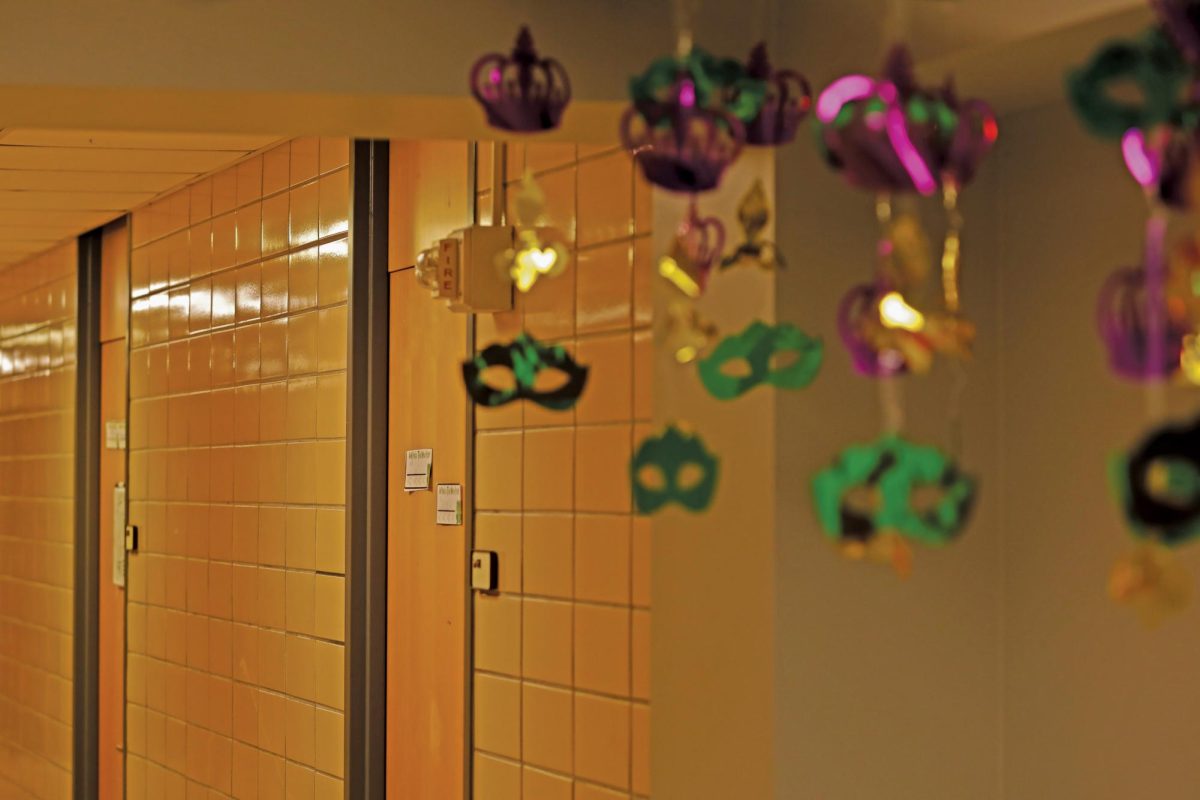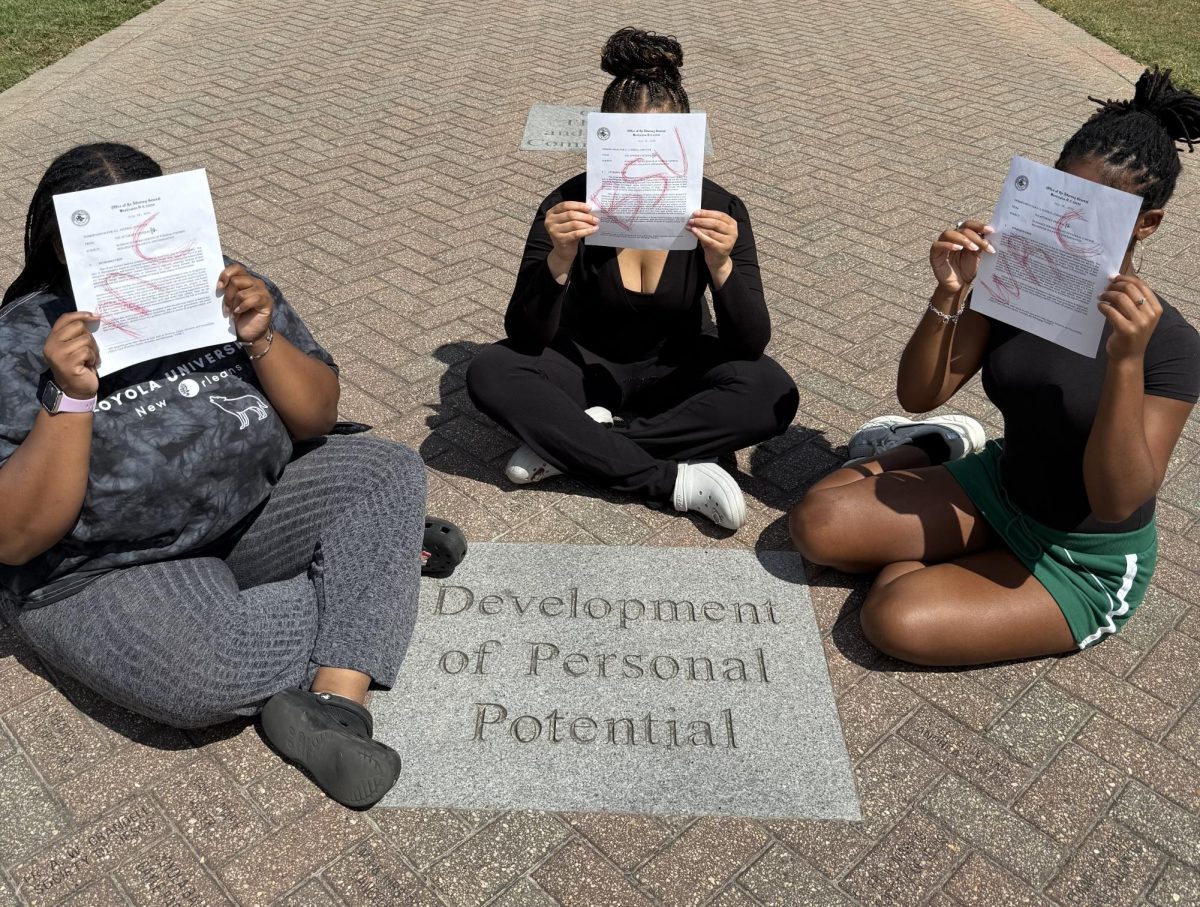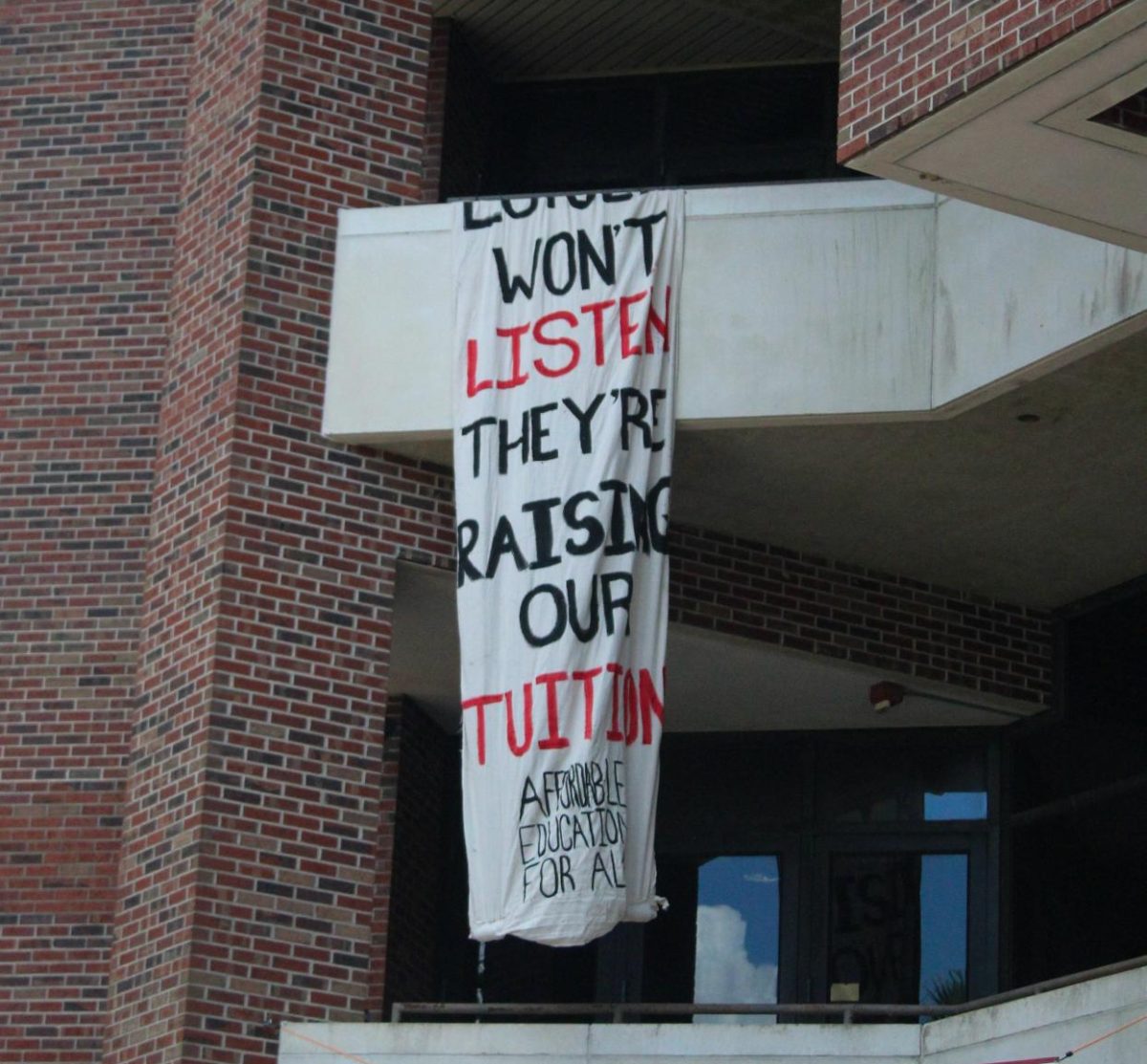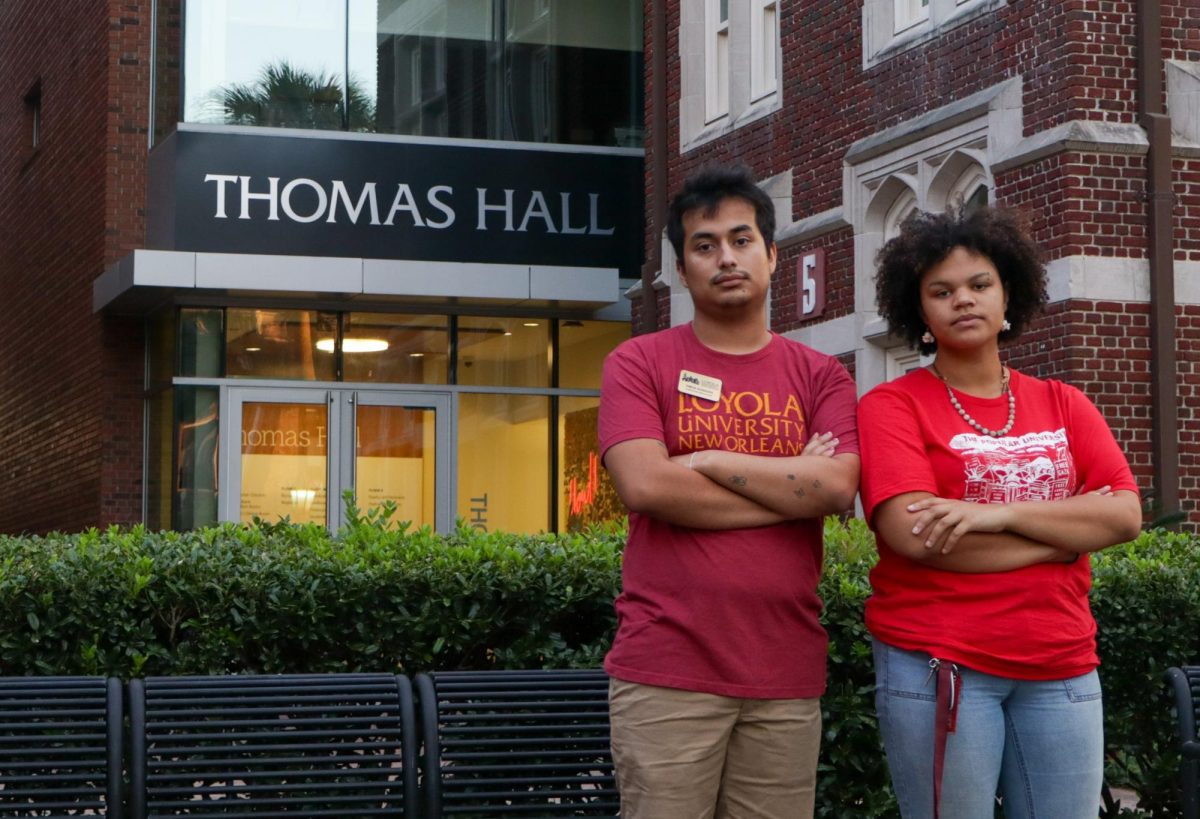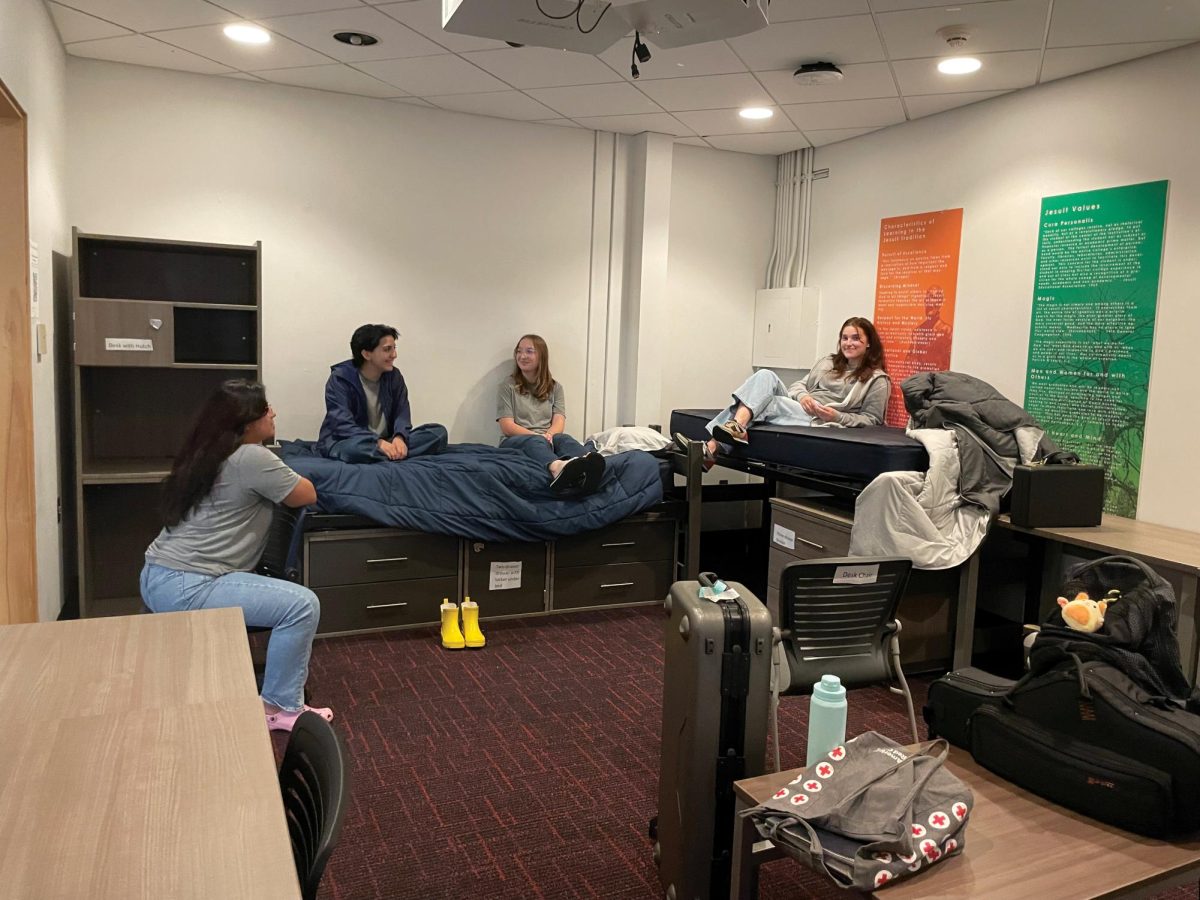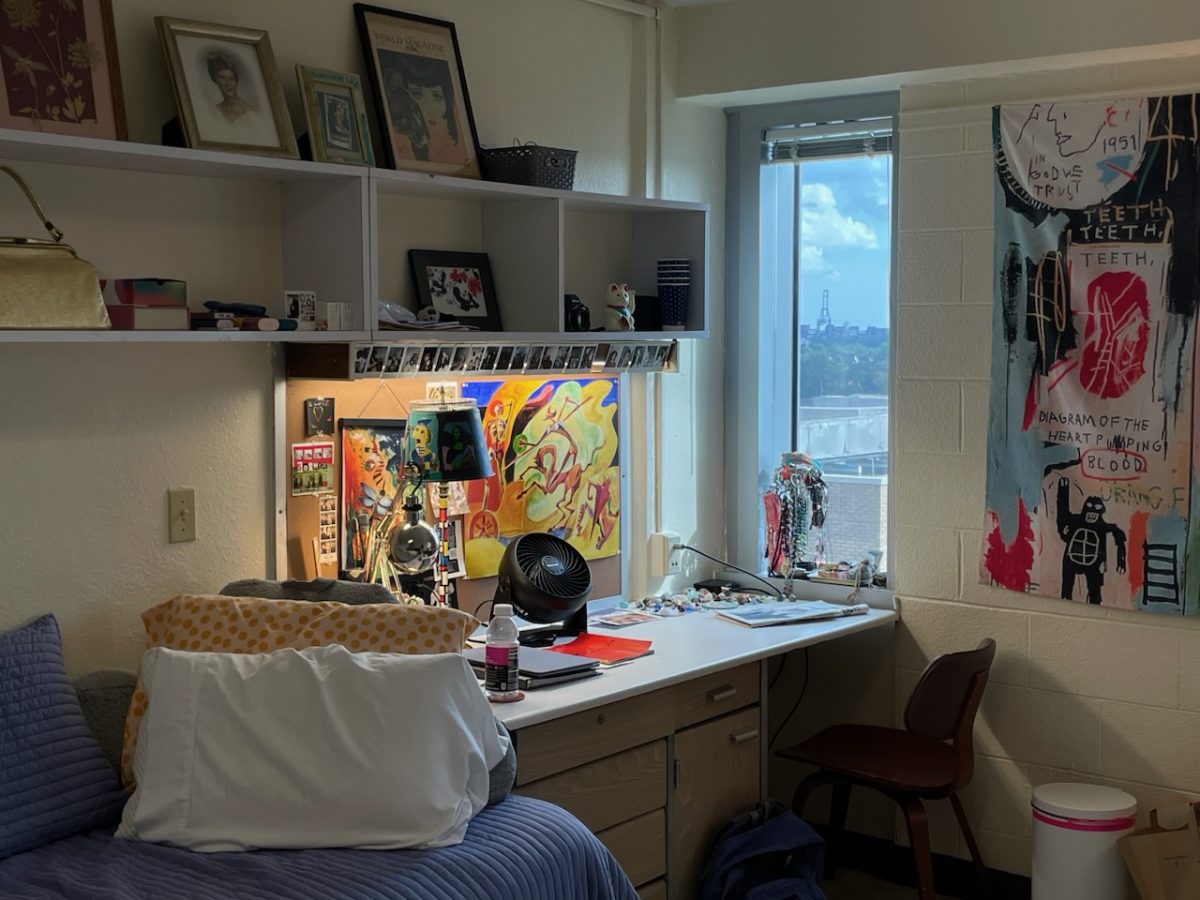Students are expressing concerns with the raised price to have a guest stay in the residence halls during the Mardi Gras holiday. Increased security measures and gendered guest requirements leave them frustrated and confused.
Design junior Emma Harlan said, “The fact that they keep increasing the price […] is really frustrating.”
Harlan feels she already gives Loyola a lot of money, but she doesn’t feel she’s getting enough return from it and doesn’t see where it’s going.
She feels that between her freshman year to now, the university as a whole has become increasingly more disorganized.
In previous years, students were given building stickers to denote residency, but this year, residential life is issuing wristbands for each resident to wear for the entirety of the holiday to enter the buildings, according to an email to students.
However, no information from Residential Life has been communicated with students on when they will receive these wristbands.
“They can’t get organized, so why do they insist that students are perfect when they’re not giving us the resources we need in order to follow their rules and regulations,” Harlan said.
Director of residential life Chris Rice did not respond in time for publication. He was emailed on Jan. 18 and 23. It remains unclear what the guest fee is used for at Loyola.
University policy surrounding guests include that they must be the same gender as the host.
Harlan believes that policy is “ridiculous.”
There are students that fit both inside and outside of the gender binary, and for those students, the restrictions based on gender make things harder for them.
Harlan wants administration to take the needs of students into consideration more, not just with Mardi Gras policies but across different sectors of campus life.
Psychology freshman Joshua Fletcher has a similar outlook on what the policies look like for campus.
He agrees with Harlan that $300 is a lot to ask out of college students, and to him, it just doesn’t make sense.
Fletcher also finds the newfound security measures frustrating to deal with, and like Harlan, he takes issue with the gender policy.
“I’m the person that pays for the room, so I should be able to decide who gets in there,” he said.
Both Fletcher and Harlan feel that the university policies are not giving students enough autonomy.
As for housing and safety protocols, Mardi Gras looks a lot different at other universities across New Orleans.
Other nearby universities are charging less for their students to house guests during the Mardi Gras holiday.
Tim Lempfert, executive director of housing and residence life at Tulane University said guest prices for Mardi Gras housing have not been raised, and their policy does not include gender requirements.
“The cost was and remains $150, which covers the period from Feb. 7–13, 2024,” he said.
Lempfert said the guest fee exists to aid in covering additional lighting, security and staffing, and shuttle and operational costs.
According to the 2023-24 Pontchartrain Hall resident handbook for University of New Orleans, hosts are charged $50 per guest for a maximum of two guests.
Additionally, Xavier University of Louisiana and Dillard University do not permit guests during the Mardi Gras holiday, according to their 2019-20 and 2020-21 student handbooks, respectively.
If students do not wish to pay for a Mardi-guest, hotels and Airbnbs exist as an alternative option with pricing ranging from $300-$450 per night for hotels and $200-$500 per night for Airbnbs.


